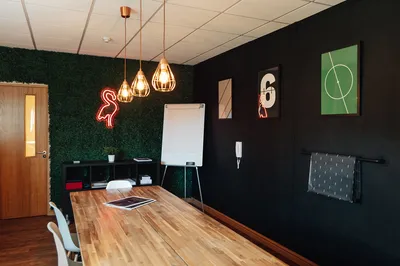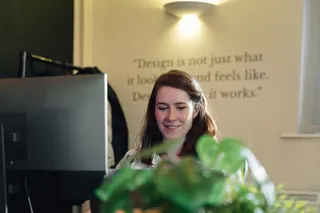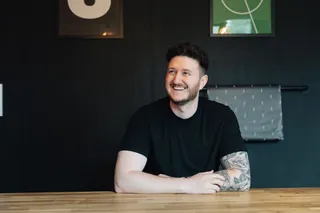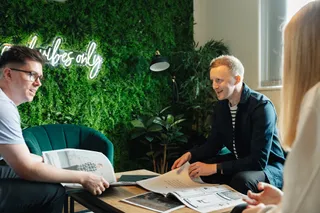How Do I Choose a Web Design Agency?


Launching a website — or getting a full re-design of the one you already have —is one of the hardest but most important tasks on many new business owners’ lists, and there’s a lot to consider when choosing the company you want to do it.
You can’t make a first impression twice, and your website will be the first thing many prospective customers will see. Your website is the face of your company, and a key factor in whether people choose to do business with you as opposed to your competitor.
A business’s online presence, regardless of industry, can have a massive impact on its success. We’re sure that like us you’ve visited a site before, found it unusable, poor quality, confusing or just plain unattractive and not stuck around.
Nowadays, a website gives consumers a destination to find you and will be the main point of contact you have with your audience. It’s so much more than just a landing page with information about your shop or service.
Your website establishes who you are, what you can offer, what you represent, and what you stand for, and should showcase your business in the best possible way to your prospective audience.
It’s also a great platform to set yourself apart from your competitors, and without it, your consumers won’t be able to find quality and reliable information on your business, or worse yet, be able to purchase from you.
Your website isn’t going to make the impact you desire it to if it’s outdated, poorly designed and developed, and not user-friendly.
It’s an especially important consideration for anyone in e-Commerce.
A Reuters report showed that 70% of Britons now prefer online shopping to in-store, up from less than half pre-pandemic, and consumers spent over 120 billion online in 2021. If those numbers don’t convince you of the need for a well-designed website for your business, nothing will!
There are currently over 5 billion active internet users worldwide, using over 1.7 billion websites. In short…competition is incredibly fierce, and having a well-designed, responsive, and visually appealing website can be the key to your business’s success, or the architect of its downfall.
When you hear the term web design your mind may immediately jump to mood boards, illustrations, and colour swatches, and while a web designer does create and control the aesthetics of a site — a key principle of successful web design — their multifaceted role includes so much more.
A combination of functional and aesthetic elements, web design is what controls the look of a website as well as the site’s structure and the users’ experience of it. It is the art of effectively planning and arranging content to meet the needs of the user while ensuring the site provides an efficient and aesthetically pleasing experience from start to finish.
Smart and creative web design can turn the use of your website into an informative and enjoyable experience for your audience, leading them to trust and invest in your business and keep them coming back for more.
It is a specialist, comprehensive service that supports your business online and is a key component of a successful business strategy in the competitive, digital world we now live in.
When working with a web design agency, a team of designers and developers will work to gain a deep understanding of your needs and combine them with their advanced creative and technical skills to create a final product that can work wonders for your business’s success.
A designer will take a business’s requirements, and create layouts, designs, and features that display the client's services in a way that is most appealing to the target audience. This includes the site’s interface and navigation, and all aesthetic, and experiential aspects.
A skilled designer will also strategically design a site in a way that guides visitors through the buying process, keeping them on the site for as long as possible and even directing them towards other potential purchases based on their previous site interactions. They’ll also ensure a site connects seamlessly to your other business marketing channels including your social media accounts — further cementing the relationship with the consumer.
Good web designers design sites that guide people through the buying process, and they ensure sites connect seamlessly with other online marketing channels such as social media and e-mail.
Working alongside the web designer will be a web developer. They’re responsible for the creation and maintenance of a site’s structure and use complex coding languages to ensure optimal website functionality and interactivity.
A web developer must understand the user’s needs, to ensure the internal architecture of the site is used to make the experience as easy and enjoyable as possible for the user.
They’re the geeks of the agency, and while you don’t need to know exactly how they do it, trust us you’ll need a good one on your side.
Visit The Process Behind Building a Website to understand all aspects of website design and development.
Once briefed, the two combine their abilities with their technical and creative know-how to create the finished product – a beautiful, functional website that will show off the very best of your business.
Learn more here about The Role of a Web Developer and The Role of a Web Designer.

Just as there are a huge number of websites out there, there are many web design agencies to choose from when deciding who best to trust with the creation, development, and maintenance of your website.
Following these tips, you’ll be able to find your match made in web design heaven!
Are you a small business looking for a simple site that details your service and trading information, or a large company looking to launch an e-commerce platform that will potentially serve hundreds of thousands of consumers worldwide?
How many pages will you need and what sort of content do you want to display?
Will you be selling products directly from your site? If so, how many? Do you need a booking platform? A blog? A portfolio?
At the beginning of the process, it’s worth grabbing your notepad and writing down exactly what your business is and what you feel it requires to be successful. This could be an e-commerce platform, a blog, video content, or any other element that will ultimately add value to your website. Just write down anything that comes to mind, and don’t be afraid to ask questions when discussing these with the agency. If they’ve worked with a client in the same industry, they will likely have some tried and tested suggestions and will be able to show you working examples.

This is now a great time to look at other websites out there. Your first stop should be competitors within your industry who are reaching the levels of success you hope to. You don’t want to ‘copy’ as it were, but make note of particular elements that you think would work well for your website, and can your agency implement these features for yours? It’s also worth listing some websites you enjoy, and aesthetics you feel would work for your business. These don’t need to be from related industries but can give an agency an idea of the kind of style and functionality you’re aiming for.
While some listing some ‘must haves’ is helpful, keep an open mind to the agency’s suggestions. You know your business better than any other person, and while they should value your ideas, they’re the professionals and you’ll be paying for their expertise. From their experience in the industry, they will know what works, what doesn’t, and how to best help you reach your business goals.
A good agency won't steer you wrong, so stay receptive and open to any suggestions they offer up.
Providing all this information from the get-go will help the agency understand exactly what is required, which will ultimately save money, and time and get you better results.
If you really want to impress, consider putting together a client brief that’ll contain all of the above in one clear and concise document.
Having a firm idea of how much you want to pay is essential when choosing the right agency for you. Fees can vary widely depending on the size of the project, but once you’ve presented and discussed your needs and requirements, they should be able to give you an indication of costs. If this ends up being entirely out of your budget, you may have to take your brief elsewhere, but a good agency should be able to discuss with you where you may be able to scale back to a more achievable price point.
While saving on costs will be at the forefront of any business owner’s mind, this is not the time to look for the best possible deal, and the adage ‘you have to spend money to make money’ should be considered.
You get what you pay for, and while a less reputable agency may promise to deliver everything you’ve asked for under budget, it’s a big risk to take with such an important aspect of your business’s success. You want a good quality website that looks and functions in a way that represents your business and allows your users to interact with it in a way that’s mutually beneficial for both them and you.
Here at MadeByShape we work with clients across a range of industries, and with vastly different budgets. The best thing is to make your budget clear from the outset.
We have the expertise to cater for global companies, but also have the flexibility to work with smaller brands.
We're a busy digital agency, so we do have to state a minimum spend - but if you come to us with an awesome idea, and have realistic expectations, there's no reason we can't have a discussion.
Every enquiry we get, we consider before making a decision on whether to take it to the next step or not. If you feel we'd be a good fit for your and your project, simply get in touch.
In these very early stages you also need to pin down a deadline. Do you need your website to launch before a specific date? Maybe a seasonal holiday or before an industry event? If so, communicate this to the agency. This can impact costs, and whether the agency will have the time to take on your project in the first place.
The best way to see the work of your possible design agency match is by visiting their online portfolio, which you’ll find clearly displayed on their website (note — if you can’t find it, then this is a clear sign to immediately move on!)
Take a look through past work to see if you like their overall aesthetic, and what they’ve created for past clients. Do their featured clients seem comparable to you in terms of size? Have they worked on projects similar to yours before? Or with clients in the same or a similar industry? While not a must, it’s good to see examples of work that display their understanding of your industry and audience.
To get an even better idea click through and get a feel for the usability of the sites as they are today. Do they function in a way that you’d expect, and that you’d like your site to? Is the brand’s offering clear? Are there any features or elements you’d like to utilise? Styles will change from project to project, but it’s these core functionalities that will be a key to a site’s success. You should be confident your agency of choice will have a full understanding of the importance of user experience, and that responsive web design is their M.O.
The real websites they have developed are the best testimony of their work, and it’s worth scrutinizing these before you make your mind up about them. Viewing and exploring them should give you peace of mind, or make you immediately move on to your next candidate. Whatever the result, they’re valuable ports of call in your research process.
As with choosing a restaurant for that special event, or your hotel for your next getaway, head to the reviews to find out what people are really saying about an agency.
Start with any testimonials on an agency’s website where you can find an in-depth view of a client’s experience, concerning a particular project. From here head to an independent platform — Google reviews, Trustpilot etc. to see what people are saying when it isn’t curated by the agency themselves.
If there are several negative reviews by reputable businesses, now is probably the time to drop them from your list.
While researching past projects and digging into reviews is a good way to make a quick judgement on an agency, one of the best (and most obvious) ways to find out their style and capabilities is by spending time on their own website.
This is their workshop, a place where they have full control to show off their skills and design ideas, and even if the style wouldn’t suit your business, you should be wowed from the moment you land on their homepage.
An agency of talented designers and developers with full creative control should be able to create a slick, stylish, intuitive, and highly functional website that keeps you moving from page to page willingly, and with ease. If you’re not impressed with what you find, then this could be a good indication that they’re not the right pick for you.
One of the main things to consider when deciding on the agency is, do you actually like the people who work there? Do they have a great working culture? Now you don’t need to become best friends or invite them over for dinner, but a decent rapport can make a big difference to the success — and just overall enjoyment —of the project. You want to feel comfortable enough with them to ask questions, check on the progress, and trust them with the work you’re asking them to complete.

Avoid any agency with a team that you feel is condescending, unapproachable or who won’t listen to any of your thoughts regarding the project. Yes, they’re the experts but you shouldn’t feel as if you can’t speak up if the design heads in a direction you’re unhappy with. You should feel that their design expertise and standards are in line with your vision.
Reviews are a good way to find out how others felt about their interactions during the process, and visiting the agencies ‘about us’ and ‘who we are’ pages is worthwhile as you can get a little more detail about the agency itself and the personalities and skillsets of the people who work there. A great agency website should leave you feeling like you know the people who work there and should give you a good indication of how you’ll find the overall process.
Here at MadeByShape we proactively seek clients who we know will fit in with our work culture, and who will enjoy the process as much as we do. While a professional service, it should be enjoyable for everyone involved,
We want to enjoy working on projects, and having laughs with clients. For us it's vitally important that everyone is on the same page, and that communication is comfortable.
An obvious, underappreciated tip and a real timesaver! Ask around. Has anyone you know worked with a particularly impressive agency in the past? If the answer is yes, and they’re singing their praises then they’re probably worth looking into.
If someone you like and respect felt they had great service and got on with a particular agency’s team, chances are you will too.
Another option is to ‘shop online’ as it were. If you come across any impressive sites while browsing, check to see who made it! Most designers will be credited in the footer of a site with a link back so you can find their details quickly and easily
A simple but effective way to decide if you’ll put them on your shortlist! An introductory chat can be a good indicator of how the working relationship will be going forward. Do they respond to you swiftly? Are they friendly and happy to discuss your project? At this stage, you want to feel you can discuss your project and ask questions, without being instantly hit with a hard sell. It’s a quick way to get the general vibe of an agency and the people you’ll be dealing with throughout the project.

Once you’ve taken all the above on board, here are some important questions you should ask any agency and their response should help you pick your final candidate:
A content management system (CMS) is a software application that allows users to create, edit, store, and publish digital content. It is there to help you easily manage and optimise the website’s capabilities and content. Having one and being able to use it properly will mean you can make changes to your website such as adding written copy or uploading new products without having to learn how to code!
Once your website is fully developed by a web design professional, managing the actual content on your website should be simple and easy to learn, but the agency should be happy to help you get to grips with it and answer any questions you have at any stage.
It’s important you feel comfortable enough with your website to make necessary changes to it as and when. With this in mind, style is not more important than substance. A stylish website is worthless if you can’t actually use it to convert visitors into customers.
Scalability should be an important consideration for any new business owner. Right now you may only be in the early stages of growth, but you never know how the business may bloom. Having the option to upgrade and enhance the website is a must and should be possible without causing any issues to the responsiveness of your original website. If these are things you know without question you will want to add down the line, it’s worth discussing cost in the early stages so you’re not hit with any unpleasant surprises!
Written content is hugely important on any website. While the volume may differ depending on the specific project, it’s the main way many people and search engines find you so it’s worth making sure you’re utilising it in the best way that you can.
Tone of voice and personality is crucial to a brand, and you want to be working with an experienced writer who knows how to and specifically writes for websites and understands SEO, keywords, and page hierarchy, as well as your business and its needs.
Some agencies will outsource copywriting for you, which can be less than ideal if you want to keep the process streamlined. The best choice is an agency who have a copywriting team in-house, who can create marketing-focused content for your site that is written with clarity and confidence.
A great agency should be able to provide you with a focused copywriting, design and development team who will collaborate with your goals and expectations in mind.
While not a question that should discount an agency completely, if they typically work with a specific type of client, be it the size, or the industry, the learning curve required to design and develop your website successfully may be too steep of a learning curve.
Choose an agency that works with clients like yourself and who will understand exactly what your website needs are, or who can demonstrate success when working with a broad spectrum of clients across a range of industries. The latter can be preferable, as it shows the team are truly skilled, knowledgeable, and versatile, and will be effective no matter what your requirements.
No matter how well your website is built, things change, and you may encounter issues surrounding privacy policies and security vulnerabilities. At some point, your website will need to be updated, and you should find out from the get-go who will handle ongoing website maintenance and management. Worst case scenario — your website crashes — you need to know who you can turn to, to get it back up and running. Will it be handled in-house? How often is the website backed up and how quickly can it be restored? These are all things you need to ask and understand early on, and not in a moment of panic when your website is down.
Search engine optimization (SEO) is the process of improving the quality and quantity of website traffic to a website or a web page from Google and other search engines. SEO targets unpaid traffic, and it’s an important business generation tool, whether you’re selling a product or a service.
It’s crucial for ensuring your website is visible and easily found by your target audience. More traffic means more opportunities to convert visitors into customers and finding yourself highly ranked (organically) by Google is one of the best ways to build a good reputation within your industry.
A great agency should be able to advise on and create a bespoke SEO strategy based on your business needs and audience research.
Choosing a web design agency to trust with your website isn’t easy, but the right team will bring value and enhance your business in every way that matters.
It’s a key part of any business development process in the current market, and by doing a little due diligence — and following these tips — there’s no reason you won’t be able to find a team who can deliver the perfect website for you.
Hello, I'm Natasia, and I'm a content writer for Shape.